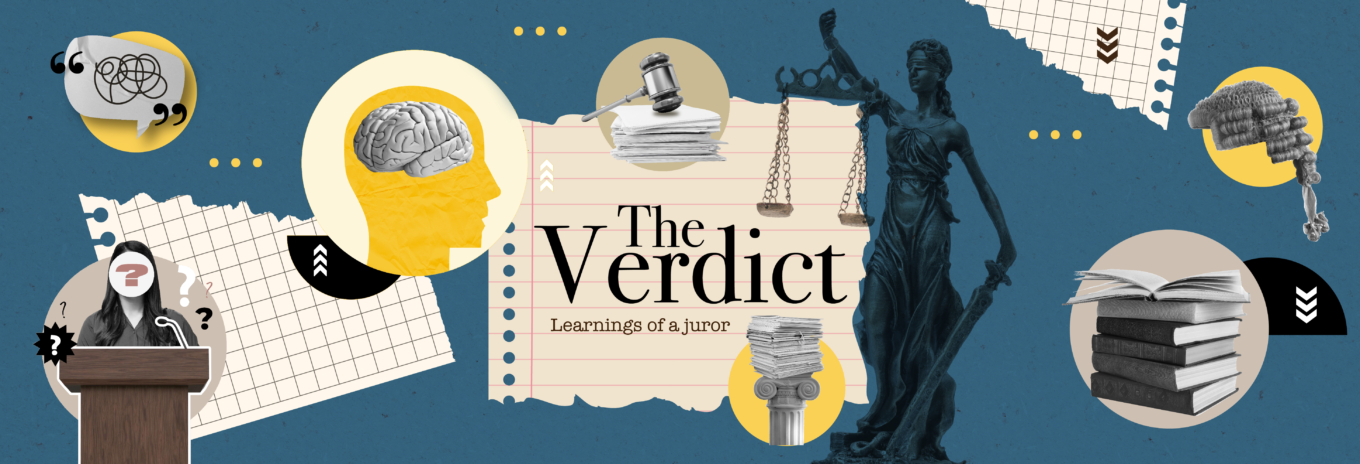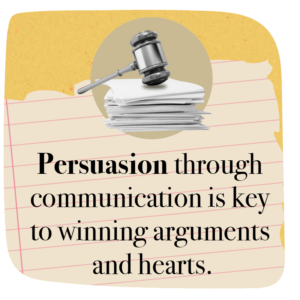The letter lands on your mat, telling you that you’re being called for jury service.
It can happen to any UK adult at any moment and the experience is unlike almost anything else.
Entering a world of barristers, courtrooms and defendants is like stepping into a TV drama.
This is the feeling captured in Channel 4’s The Jury: Murder Trial. Designed as a social experiment for entertainment, it immersed viewers in the complexities of a staged murder trial.
As two sets of jurors faced with the same information come to the same verdict, it also questions whether the British judicial system is fit for purpose.
A courtroom provides a fascinating crucible of communication techniques. In this blog, we delve into the communication lessons gleaned from this compelling series and also my personal recent experience of sitting on a jury.
View from the jury box
I found my jury service profoundly insightful and my comms experience definitely shaped the view I had on proceedings.
I initially felt like I was being picked as a tribute in the Hunger Games and went through a myriad of emotions and a few sleepless nights, but ended up feeling energised by the process.
Why? I can honestly say it was not because I was enjoying the power or responsibility as that sat very heavy on me day after day. But as I reflected, what it did offer me was:
- It lifted me out my day-to-day world and allowed me a different view and a new experience which animated me.
- I was faced with new stimulus which made me energised and keen to learn.
- It gave me a voice in a different space that helped my self-esteem.
- It made me question my own values deeply and balance them against others’ beliefs, asking myself why others saw things differently and why that was the case.
- The formality of the courtroom setting gave me structure and the discipline to concentrate on just one thing entirely, with absolutely no distractions!
- It made me question the limitations and barriers I put on myself daily.
- It gave me gratitude for my own life.
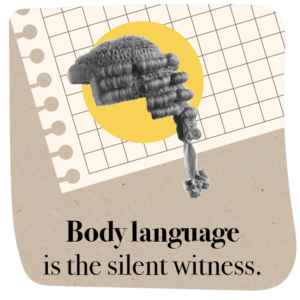
Courtroom comms
Beyond the drama and overengineered narrative of the C4 show, it also provides valuable insight into the communication methods used in legal proceedings.
Nuances, verbal and non-verbal
If you are providing information to the jury, like barristers, the way you perform can be crucial to being believable and credible.
Tears, lack of eye contact, shouting. Arguing, even a change in tone when answering questions.
Non-verbal cues are the hints lawyers hope jurors pick up on when deciding on the defendant or witnesses’ evidence.
Body language is the silent witness.
The power of storytelling
Storytelling is all-powerful in courtroom advocacy.
Lawyers construct narratives designed to resonate with jurors on an emotional level, to fuel empathy with their clients’ perspectives.
Get the storytelling right and they can influence and persuade the jury in their favour.
Get it wrong and it’s a very different story. 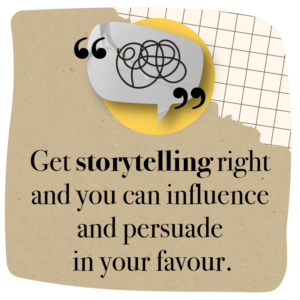
Persuasive language
Language choice is crucial. Nothing is left to chance.
The deliberate breaking down of legal jargon offers clarity and is designed to guide thoughts.
Persuasion through communication is key to winning arguments and the hearts of the jury.
Jury bundles with clear instruction on points of law make the information digestible, clear and are designed to facilitate informed decision-making, guide conversation and shape outcomes among the jury.
Tone of voice
Lawyers meticulously craft their statements. The content is picked for persuasion.
They practice their delivery and presenting evidence convincingly, giving logical arguments, and craft ways to establish rapport.
Their ability to communicate persuasively plays a pivotal role in shaping the jury’s perception of the case.
They utilise tone, gestures, eye contact and facial expressions to sway the jury and convey credibility. It’s a real art form.
Active listening 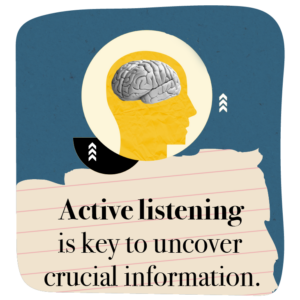
In a courtroom setting, it’s an expectation to listen attentively.
But active listening is key to uncover crucial information and guide further questioning and cross-examining.
Adapting questions in light of the witnesses last answer helps uncover inconsistencies and shapes the narrative in their favour. Something those at the bench do incredibly well.
Being given the chance to participate in our legal system was a real privilege and a pleasant surprise was that it taught me a great deal about myself.
I was able to look deeper inside and draw on my experience in comms as I discovered how steeped in the judicial system persuasive storytelling is and how it shapes lives.
By Ally Taylor

